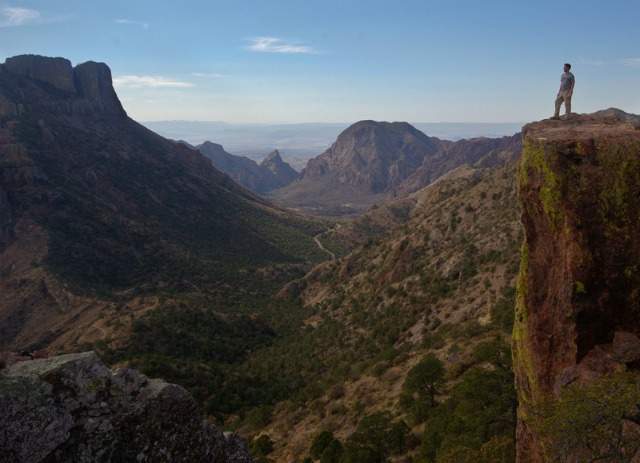On a RTW trip we arrive in countless foreign, strange locations with nothing but an out-of-date guidebook and a general idea of where the cheap hostels are. Yet often, the most intimidating and unanticipated destination to which we travel is back home. This is likely because the return can be packed tighter with rigid expectations than your 50 liter pack: we need to get a job, we want to assimilate seamlessly back into our former lives, we feel compelled to equal the contemporaries we left behind in social and career status.
But when we are preparing for a trip, expectations rarely make the packing list. The best traveler is an empty Moleskine page, completely without preconceptions of a place, its culture, and its people. Things rarely go according to plan, and in fact we often welcome and even appreciate the wrinkles, rips, and rain stains in the travel map because they often lead to the most unexpected and satisfying experiences.
But why we are so tolerant of change and unpredictability on the road when back home these things seem so stressful and discouraging?

Much of it probably has to do with responsibility. On the overnight buses and multi-day boat trips, it’s really only you, your curiosity, and your open return ticket, whereas back home it’s also your rent, your cell phone, your car, your email account, your cubicle, and your addiction to caffeine. But beyond that, when we are traveling, there is far more acceptance of the plan being not to have a plan because agendas are often what cause stress and disappointment, and that is decidedly not what traveling is about. So if we can take our travel mindset and the lessons it teaches us and apply it to our return home, the experience can be far less nerve-racking and intimidating.
[social]
I’ll be returning in a few months after two years abroad, smashing like a Toyota crash dummy into a concrete wall of expectations that is two years behind most of my friends – not to mention where I thought I’d be at this point in my life career-wise. Part of me questions if I made the right decision to travel, if I’ll feel out of place or left behind in an American society that encourages immediate absorption into the work world.
But the other part of me has been conversing with long term travelers for the past two years and has realized that though we may brag about how many borders we’ve crossed or who has the most horrific visa story, there really isn’t a sense of competition and superiority. Most indie travelers realize that the trip isn’t about expectations and checkpoints, but how you internalize your experiences and how they make you a better person. We may not have gotten a recent promotion or salary bump, but would we have made the decision to engage in RTW travel if we really valued these as significant contributions to our personal development? In the end, we chose to visit new cultures and broaden our worldview while others chose to advance their career and enrich their home life. It’s important to recognize that, like traveling, it’s not a contest.
Most indie travelers realize that the trip isn’t about expectations and checkpoints, but how you internalize your experiences and how they make you a better person.
Though admittedly, this is difficult to do when faced with one of the greatest pressures and expectations of returning home after a RTW trip – getting a job (because of a dwindling bank account, the need to survive, and the urge to validate the decision to travel) – even though a job means a desk, a schedule, and only a prescribed, standard amount of vacation days. A job can be conformity, turning you into a functioning cog in the machine of the American dream, and we can grow to resent a job because it often represents a completely different mindset and lifestyle from the one we adopt when we travel. This could be the greatest argument for pursuing that ultimate of cliches, “get a job that makes you happy.”

And perhaps what we learn most abroad is that the pursuit of happiness takes many forms. Whether it’s a three day trek to a UNESCO site, or an eight month journey for spiritual maturity, or a lifelong pursuit of the perfect cup of coffee, our fulfillment when we travel is typically not about money. Traveling puts into perspective the idea that the prestigious title and corresponding salary may pale in comparison to the occupation that keeps the snooze button idle.
Still, when we head home we may be expecting or hoping for a certain salary to achieve a desired standard of living. You may have enjoyed a comfortable lifestyle before you left, or you may have lived and traveled abroad in areas where your home currency was very strong. But as long term travelers, we have contentedly survived months with just a backpack, a dingy hostel room, a cold shower, and three pairs of underwear. Often the pride of a nomad is how little they can carry and still function. That 70L pack rarely fits into the taxi trunk and packing your closet causes back problems, yet we hardly ever apply the “pack-light” or “one-bag” philosophy to our everyday lives.
Honestly, how many possessions and promotions and status-reinforcements do we really need? When we finally do return home from time spent wandering, we may not be equal to our peers in all regards, we may not have the perfect job organized and we may not be able to dine out or buy cocktails or live in a three-room apartment. But we did travel. And in doing so, we learned to disregard our expectations and accept circumstances as they come, viewing our life and our journeys like a window seat, not necessarily knowing or planning what’s coming next, but keeping our eyes and minds open and anticipating nonetheless.
Have you traveled long-term before? How did you deal with expectations when you returned home? Comment below to share your experience.
Check out the following articles and resources to assist you when coming home from a big trip:
- Coming home from a big trip? Click here to share your story with BootsnAll or get some help planning that next trip.
- Check out the Coming Home Page in BootsnAll’s RTW Section
- Read The Worst Part About Reverse Culture Shock
- Submit a Traveler Profile to help others out with their trip planning
- Read How Canned Peas Changed the Way I Think About Travel: An Essay on Returning Home
Every week, on “Round the World Wednesday” we share tips for planning, budgeting and selecting a route, plus advice on where to go and what to see and do all around the world.
Photo credits: AlphaTangoBravo / Adam Baker, Robert S. Donovan

